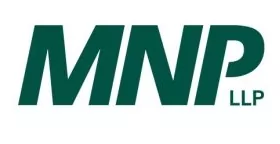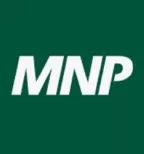On October 29, 2014, through the OECD “Global Forum on
Transparency and Exchange of Information for Tax Purposes,”
both the OECD and G20 countries endorsed a new Standard for
Automatic Exchange of Financial Account Information in Tax Matter.
59 countries are so-called “early adopters” and are
committed to undertaking their first exchanges by 2017. 35 other
countries (including Canada) have committed to undertaking their
first information exchanges by 2018. The U.S. has agreed to
participate in automatic information exchanges through its Foreign
Account Tax Compliance Act (FATCA), pursuant to its bi-lateral
Intergovernmental Agreements.
This global automatic information exchange initiative is based on
each jurisdiction’s participation in the OECD’s
Multi-lateral Convention on Mutual Administrative Assistance in Tax
Matters. The information exchange itself will follow the
OECD’s Standard for Automatic Exchange of Financial Account
Information in Tax Matters (first released in July 2014). This
automatic information exchange “draws extensively on the
intergovernmental approach to implementing FATCA” and is
designed to be implemented via a combination of multi-lateral
conventions and bi-lateral competent authority agreements.
The approach taken by OECD in this model appears to involve the
multi-lateral convention and the OECD standard forming the
overarching framework for the information exchange and bi-lateral
competent authority agreements between participating jurisdictions
to implement this broader framework in a way that accounts for
local law particularities.
One of the key features touted by OECD of such a multi-lateral
information sharing standard is efficiency, particular for
residence jurisdictions. “[The automatic exchange] needs to
be standardised so as to benefit the maximum number of residence
jurisdictions and financial institutions while recognising that
certain issues remain to be decided by local
implementation…. A proliferation of different and
inconsistent models would potentially impose significant costs on
both government and business to collect the necessary information
and operate the different models.”
Efficiency is also expected to be achieved by creating a standard
technical reporting format that allows information to be captured,
exchanged and processed quickly and efficiently in a cost-effective
and secure manner. Additionally “compatible methods of
transmission and encryption of data must be in place.” A
global – and standardized – T5 or 1099 reporting
system, if you will.
According to the OECD, the Common Reporting Standard additionally
has the potential to relieve certain burdens imposed by the U.S.
FATCA:
“Given…the anticipated progress towards widespread
participation in the [Common Reporting Standard], it is compatible
and consistent with the [Common Reporting Standard] for the United
States to not require the look through treatment for investment
entities in Non-Participating Jurisdictions.”
This is a significant development in the global trend towards
information sharing.
The content of this article is intended to provide a general guide to the subject matter. Specialist advice should be sought about your specific circumstances.

